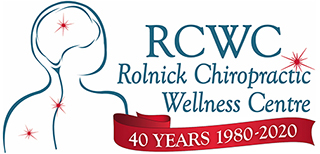Enhance Your Health
Health Tip of the Week: Nutritional Research
I have gathered the latest nutritional research and put it together in an easily readable manner. The British Medical Journal reports that consuming more fruits, vegetables and whole grains are associated with having a lower risk of developing adult onset type 2 diabetes. The cool part is that even a modest increase in these types of foods showed promise for stopping diabetes.
Next up is cholesterol. Forever, the advise for lowering cholesterol was to cut back on fats, especially saturated animal fats. It turns out in a review of dietary guidelines of people with familial high cholesterol, there was no evidence that a low fat diet lowered cholesterol.
The study found that lowered cholesterol levels were affected more by cutting out sugar and carbohydrates. As I have mentioned in previous health tips, ketogenic, low carb dieting with periodic intermittent fasting is the way to improve heart health (and a way to lose weight).
Depression symptoms may be eased by taking probiotics and prebiotics. Probiotics are foods that contain healthy digestive bacteria and prebiotics are foods that help digested foods turn into probiotics. Examples are fermented foods such as yogurt and sauerkraut.
The study shows that there is a link to brain health and gut health. Increasing the number of good bacteria that exist in the digestive flora could be an additional treatment for depression and anxiety.
Further studies are needed to firm up the conclusions, but none-the-less, probiotics are essential for overall health, immune health, digestive health and fighting inflammation in the body.
In the irony department, light alcohol drinking in middle to older age may help with cognitive brain function. Light alcohol drinking has been shown to help with heart health and now those same drinks may help the brain work better.
Compared to non-drinkers, study participants performed better in cognitive testing. Light alcohol consumption is considered 8 to 15 drinks per week. 8 drinks for women, 15 drinks for men.
Lastly, on a depressing note (give me some yogurt and sauerkraut asap!), CoVid-19 has now been shown to not only damage the lungs but also is causing a major increase in blood clots (which can lead to heart attacks), neurological symptoms (headaches, dizziness, loss of smell, fatigue, brain fog), overall body inflammation and kidney damage.
One of the biggest influencing factors in addition to co-occurring conditions like diabetes, asthma and autoimmune diseases is obesity. Patients being overweight seem to do the worse with this virus. That being said, as I mentioned above, intermittent fasting, low carb, no sugar diets are a big help in that area.
Also, I would be remiss if I did not mention (once again, twice again, thrice again) the importance of vitamin D, K and C supplementation and consuming a teaspoon of elderberry extract daily while healthy.

